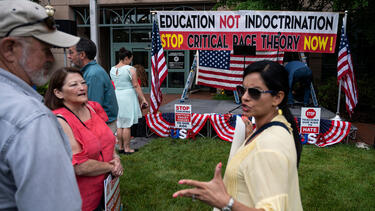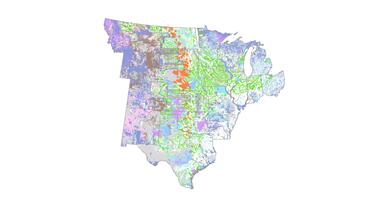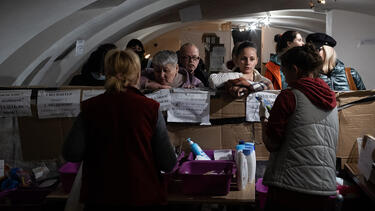Management in Practice
How the Streaming Wars Will Alter the Media Landscape
The scramble for subscribers has been a boon for consumers. But changes are coming as investors demand returns. We talked to analyst Michael Nathanson ’90 about what will be left when the dust settles.

Leading after Roe
Amanda Skinner ’08, CEO and president of Planned Parenthood of Southern New England, discusses the consequences of the Dobbs v. Jackson Women’s Health Organization decision for women’s health and economic lives, and for her organization.

How Superintendents Can Restore Public Trust in Schools
Despite challenges like the scorched-earth debates on curricula, Caitlin Sullivan ’13, co-founder of Leading Now, sees superintendents as uniquely positioned to cross lines of difference and find common ground.

Seth Goldman on the Not-So-Sweet End of Honest Tea
Seth Goldman called Coke’s decision to discontinue Honest Tea a “gut punch.” But the outcry from disappointed fans of the not-too-sweet drink have inspired him to return to tea.

Why Does Spending on Drugs Keep Going Up?
Eric Tichy ’18, vice chair of pharmacy formulary at the Mayo Clinic, explains what’s driving pharmaceutical spending and what the trends mean for patients, providers, and pharma companies.

Moving Consumer Brands to Climate Neutral
A nonprofit co-founded by Austin Whitman ’07 is helping consumers direct their spending to brands that are serious about solving climate change by certifying companies that measure their emissions, offset them in the short-term, and move toward decarbonization.

Inside the CDO Market That Catalyzed the Financial Crisis
“Inside the CDO Machine,” a special project from the Yale Program on Financial Stability, explores the first-hand perspectives of market participants.

Land Trusts’ New Tools for Fighting the Climate Crisis
Land trusts are bringing innovative new tools to tackle the myriad problems created by climate change.

What Do Ukraine’s NGOs Need?
Jenny Malseed ’05 of GlobalGiving explains what NGOs on the ground in Ukraine are experiencing and what they need to continue their work.

How Tesla’s Arrival in Germany Could Set Off a Labor Showdown
Tesla has resisted unionization in the United States. But in Germany, where the electric car maker launched a new Gigafactory this week, unions are powerful and anxious to maintain jobs in an electric future.
